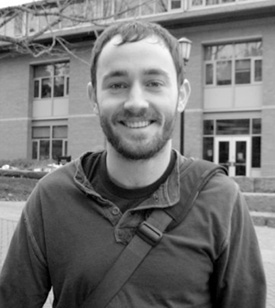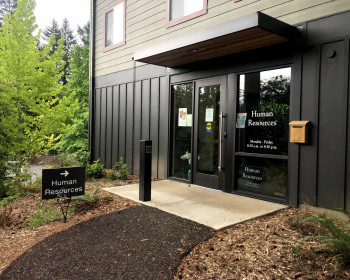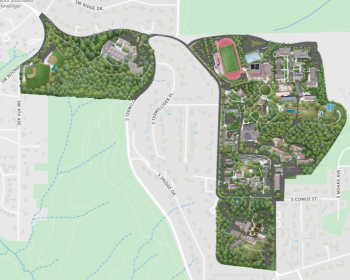L&C grad launches nationwide mobile phone collection campaign
Open gallery

FrontlineSMS:Medic and recent graduate Isaac Holeman ‘09 have launched HopePhones.org, a nationwide mobile phone collection campaign supporting mHealth programs at medical clinics in over 30 countries. The campaign will make use of old cell phones in the U.S. to provide phones for clinics and healthcare workers in the developing world.
Cell phones are valuable tools in the battle to reduce disease and illness. The field of mHealth—the provision and coordination of health-related services via mobile communications—is blossoming in response to a global shortage of healthcare workers and the demonstrated impact made by simple, mobile tools.
Hope Phones will make use of the nearly 450,000 cell phones discarded every day in the U.S. HopePhones.org allows donors to print a free shipping label and send their old phone in to The Wireless Source, a global leader in wireless device recycling. The phone’s value allows FrontlineSMS:Medic to purchase usable, recycled cell phones for healthcare workers.
Hope Phones lets you give your old cell phone new life on the frontline of global health. Just one, old blackberry will allow FrontlineSMS:Medic to purchase 3-5 cell phones for healthcare workers, bringing another 250 families onto the health grid via SMS.
FrontlineSMS:Medic is an nonprofit organization advancing rural healthcare networks in the developing world through the implementation of sustainable, appropriate technologies delivered through mobile phones. Its first pilot project distributed cell phones to community health workers in 100 rural villages in Malawi, saving thousands of dollars in travel and hospital costs and doubling the number of patients treated for tuberculosis in the Catchment area. Stories about FrontlineSMS: Medic projects have been featured in CNN, Discovery Channel news, the BBC, The Guardian, PC World and Reuters.
The organization uses FrontlineSMS, a free, open-source software program that enables large-scale, two-way text messaging using only a laptop, a GSM modem, and cell phones. Their pilot implementation model places a laptop running FrontlineSMS in a central clinic and distributes cell phones to healthcare workers to coordinate care with patients in peripheral villages. Their programs currently serve 1.2 million patients in Malawi and Uganda. Future development of the FrontlineSMS:Medic platform will encompass electronic medical records and diagnostics at the point of care.
Coupled with free, open-source software, the hardware provided through Hope Phones will scale mHealth initiatives, connecting thousands of clinics worldwide to remote healthcare workers and patients. The campaign was designed in partnership with Wieden+Kennedy—the global advertising agency of the year in 2007 and the creator of Nike’s “Just Do It” campaign—with support from kiwanja.net and The William and Flora Hewlett Foundation.
Simple ways to help:
1. Visit www.HopePhones.org and donate your old phones.
2. Spread the word!
* Email your friends, family, classmates and coworkers.
* Post on Facebook and become a fan of the Hope Phones page.
* Tell the world on Twitter - use #HopePhones as a tag so we can thank you.
* Let us know if you want the Hope Phones widget for your website or blog.
The Center for Career and Community Engagement (3CE) will be working on setting up a Hope Phones collection bin in the Fall when students return. In the meantime, feel free to contact them directly at info@hopephones.org or Laura Snider at snider@lclark.edu, Interim Manager of Community Engagement in 3CE.
Story submitted by Laura Snider, Manager, Center for Community Engagement.
email source@lclark.edu

